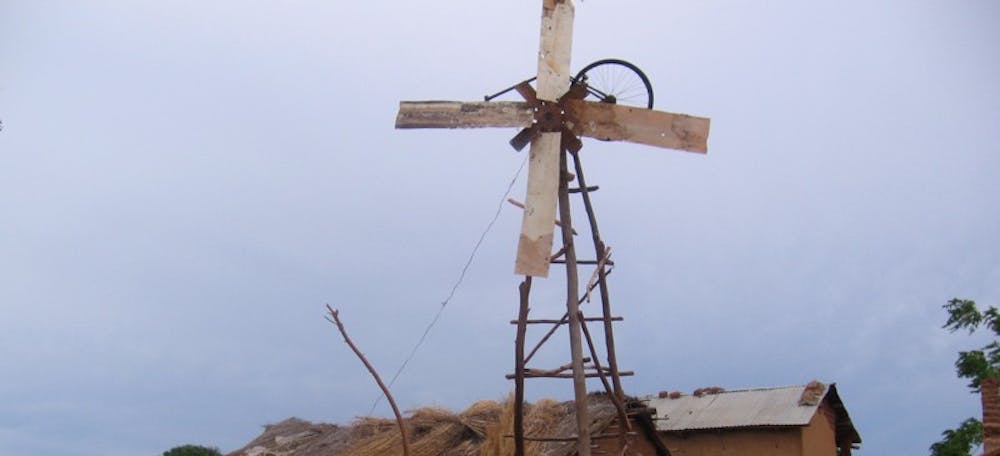In my world, food is like oxygen: It’s everywhere and always present. At home it’s a flight of stairs away in a large, climate-controlled pantry or refrigerator.
With my meal plan at school I have over eight dining locations to choose from on a daily basis from the time I wake up until 1 a.m.
I never go into Lakeside Dining Hall or Acorn Coffee Shop hoping there will be enough food to satisfy my hunger. I have never once had to worry that there wouldn’t be enough food for myself or that a friend might go to bed with aches of hunger. Starvation has never been a personal concern.
It’s not a habit of mine to analyze the abundance of food in my life. In fact, I hadn’t really given food’s constant presence in my life a thought before reading Elon University’s common reading, “The Boy Who Harnessed the Wind,” by William Kamkwamba and Bryan Mealer’s.
In all honesty, I went into it thinking I might be confused and possibly even bored by a book that I thought was solely about windmills and creating energy.
I mean, there was a windmill on the cover and the title itself reads, “The Boy Who Harnessed the Wind,”’ so I was expecting an inspirational story about a hardworking boy in Africa who made a difference in his community by harnessing wind.
In the book Kamkwamba, the main character, narrator and author, builds a windmill from scratch. The energy from the windmill made electricity and running water in his Malawian village possible. With a large increase in running water, more food is able to be harvested people are brought out of hunger. Kamkwamba’s determination and invention made his community’s quality of life significantly better.
Kamkwamba vividly recounted how he built the windmill and change people’s lives. I won’t say a lot regarding the plot of the book because I don’t want to give away this remarkable story, but because of this book, I have realized how serious hunger is.
Before reading this book I distantly thought about poverty and hunger in Africa. I would hear adults urge their kids to eat their dinner because, “There’s a starving child in Africa right now.” I would see ad campaigns on television of malnourished African children holding empty bowls.
As much as I thought I sympathized and understood, I really didn’t. The world of hunger and Africa was just so far, foreign and unlike anything I had ever known for me to truly connect and get it. It wasn’t until I had this story that it actually clicked: Hunger is real and I am lucky.
People just like you and me go to bed every night after only having had three small bites of food throughout the day. Even after my large three meals and little snacks throughout the day, I still get up for a midnight snack.
Some people are so hungry and desperate for food that they will eat grass and corn husks. I’ll admit that I’m guilty of sending back a meal if the meat isn’t cooked to my liking or the food is too cold.
Now when I open my fridge and see drawers and shelves of food I flash back to the book and its description of people deliriously wandering the streets for a single kernel of stale corn.
I’m not just lucky to have an abundance of food at my fingertips, but to have read a story that has helped me compartmentalize the severity of hunger and struggles of people.
Thanks, William Kamkwaba. You not only “harnessed the wind,” but changed my vision of what it means to be hungry and helped me to truly be able to sympathize with people so far away and foreign.


